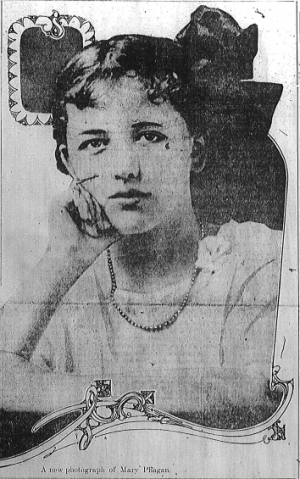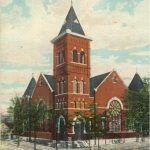
by Scott Aaronson
IT MAY WELL BE the greatest murder mystery of all time. Some assert that the Mary Phagan murder case is solved, but those who so assert are of two different and mutually exclusive camps. And those two camps still stand diametrically opposed to this day, four generations later.
The case aroused the outrage and ire and vengeance of two great communities. One, the Jewish community, feel overwhelmingly today, and felt to a lesser but still substantial extent in 1913, that Leo Frank was tried and condemned simply because he was a Jew. They believe that Leo Frank is so obviously innocent that he never would have been tried had it not been for endemic anti-Semitism in 1913 Atlanta. And they have been remarkably effective in making Southern anti-Semitism the leitmotif of virtually all drama, documentary, and other remembrance of this case for the last half century. The other, the largely Christian Southern gentile community, believed overwhelmingly in 1913 — and to an unknown but doubtlessly large degree still believes today — that justice was done when all the jurors, and every appeals court in the land including the Supreme Court of the United States, after a monumental and impressively-funded defense, agreed that Leo Frank was fairly tried and convicted for the murder of Mary Phagan. And it must rankle Southerners almost beyond words to be accused of anti-Semitism, when no Christian community anywhere on earth has so respected and welcomed Jews, has so openly acknowledged its spiritual roots in Judaism, or has so enthusiastically supported the Jewish state of Israel.
Continue Reading →


